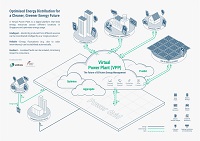For more information, please refer to:
Media Releases
12 May 2023
- From 1 July 2023, all residential premises will be required to have a Residual Current Circuit Breaker (RCCB) installed, to enhance the electrical safety in all households. Homeowners will be given a grace period of two years from the effective date of the requirement to install an RCCB.
- The RCCB is an electrical safety device that cuts off electricity supply immediately upon the detection of current leakages that may lead to an electric shock. Current leakages are caused by ageing or exposed wires, faulty electrical appliances, and damaged insulation. Hence, the RCCB is an essential protective device to prevent electric shocks.
- Since July 1985[1], all new electrical installations including those in new homes built have been required to have an RCCB installed. Over the years, most residential premises would have undergone renovations, and had their electrical circuits rewired and installed with an RCCB in line with this requirement. However, there remains a small percentage of residential premises built before July 1985 which may be using their original electrical circuits without an RCCB installed.
- For HDB flats built before July 1985, the Energy Market Authority (EMA) will be notifying homeowners to install an RCCB in their home if it has not already been installed. To provide support to lower-income households, the Housing & Development Board (HDB) has been carrying out the installation of RCCB for homeowners of 1- and 2- room HDB sold flats completed in and before 1985, if they do not already have one. The cost of the RCCB installation and necessary rewiring works for these flats is fully funded by the Government.
- For 3-room and larger flat types completed in and before 1985 and which do not have an RCCB installed, HDB will be writing to these homeowners to share more information on the RCCB Installation Assistance Programme. Under the assistance programme, the Government will subsidise up to 95% of the cost of the RCCB installation and necessary rewiring works (more details on the cost-sharing ratios are in Annex A).
- EMA will notify homeowners of private residential premises to check and install an RCCB in their home if they do not already have one. Homeowners can engage a Licensed Electrical Worker (LEW) at www.go.gov.sg/rccb-lew for installation works. For clarifications or assistance, please email ema_enquiry@ema.gov.sg or call 6835 8000.
- All residential premises (i.e. HDB flats and private residences) will be given a grace period of two years from the effective date of the requirement, 1 July 2023, to install a RCCB. The penalty for non-compliance is a fine of up to $5,000 under the Electricity (Electrical Installations) Regulations.
- All homeowners are encouraged to test their RCCB regularly to ensure that it is in good working condition. If they suspect their RCCB to be faulty, they should engage a LEW at www.go.gov.sg/rccb-lew to conduct further checks, and have it replaced. More information on this can be found in Annex B.
- For additional information, a set of Frequently Asked Questions and Answers on the requirement is at Annex C.
Annex A: Cost-sharing Ratios and Estimated Amounts Payable for HDB Homeowners
Annex B: Infographic on Steps to Test an RCCB
Annex C: Frequently Asked Questions on the RCCB Requirement
From 1 July 2023, all residential premises will be required to have a Residual Current Circuit Breaker (RCCB) installed, to enhance the electrical safety in all households.















